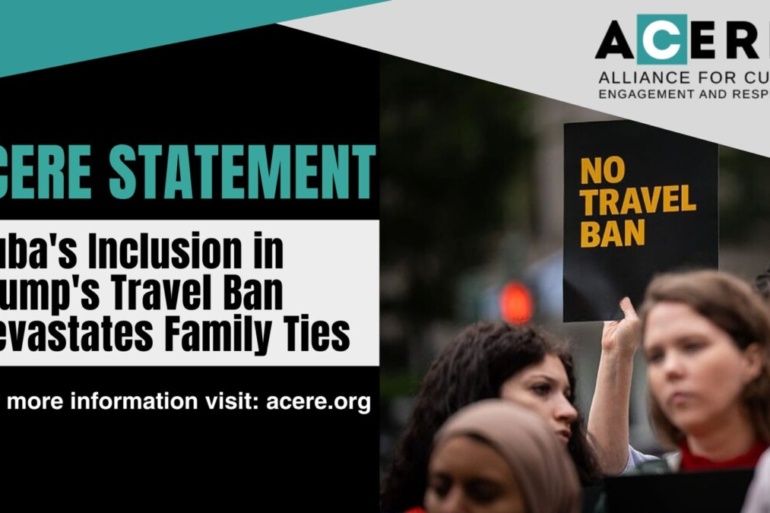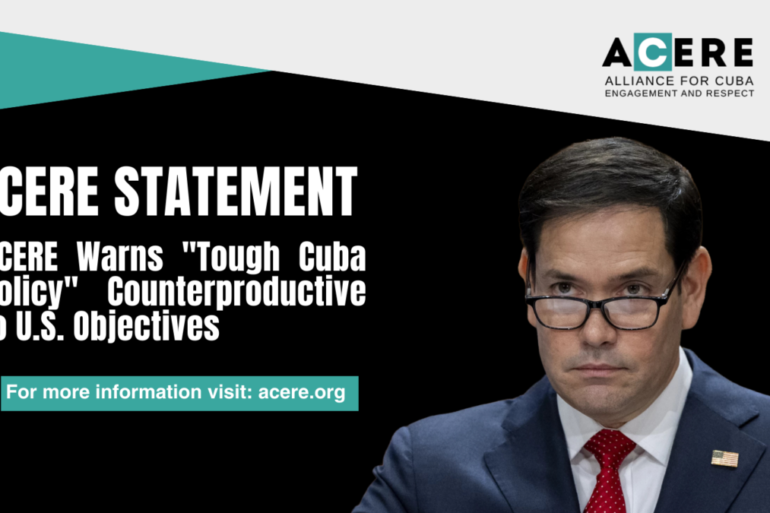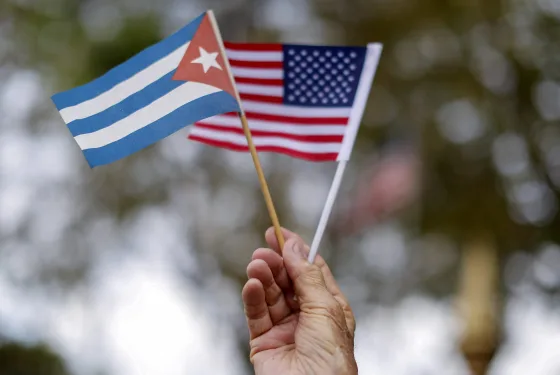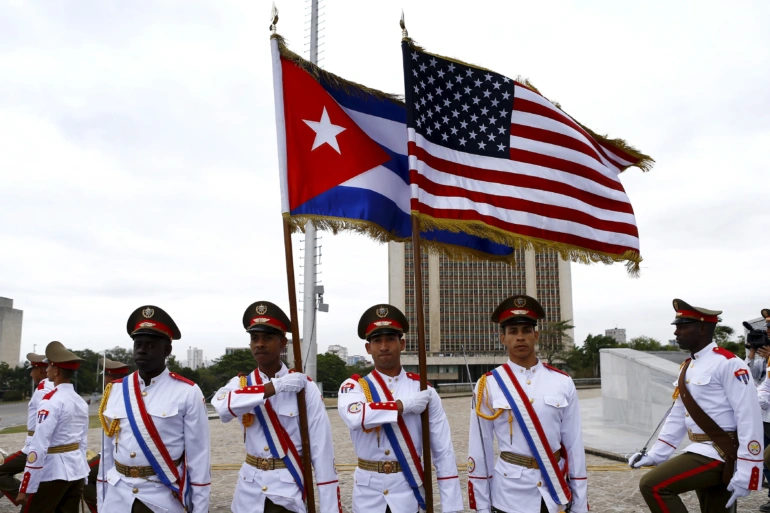U.S. Policy and Food Security in Cuba
RESOURCES
Cuba is facing an unprecedented food crisis. In March, protests broke out relating to food scarcity and inflation, as well as blackouts. Critics often blame Cuba’s centralized planning and agricultural policies, yet according to the World Food Programme (WFP), “over the past 60 years, the comprehensive social protection programmes of Cuba have largely eradicated hunger and poverty.” The WFP, the UN Food and Agriculture Organization (FAO), the International Fund for Agriculture Development (IFAD), the Economic Commission for Latin America and the Caribbean (ECLAC), Oxfam, UN Special Rapporteurs, the U.S. International Trade Commission (USITC), the Congressional Research Service (CRS), and U.S. experts and officials, among others, have identified U.S. policy as a cause or exacerbating factor in Cuba’s food security difficulties.
Food Imports
Despite being of similar size, in terms of the economy and population, Cuba imports substantially less from the United States than its neighbors. U.S. policy directly affects Cuba’s ability to import, requires payment in advance, increases shipping costs, limits earnings, scares away investors, and negatively affects the work of NGOs and multilateral organizations.

†World Bank 2020 *IMF May 2023 World Economic Outlook.
h/t Guillaume Long, former Foreign Minister of Ecuador

Watch an interview of former Secretary of Agriculture Michael Scuse in this Belly of the Beast video: “Former U.S. Agriculture Secretary Calls for Cuba Policy Change”
The United States International Trade Commission “concluded that if U.S. restrictions on trade with Cuba had been lifted in 2015, exports of … agricultural commodities … could have increased within five years to about $800 million annually from a 2010-2013 average of $300 million.” A Texas A&M study cited in a 2015 Senate Agriculture Committee hearing estimated the figure could increase fourfold to $1.2 billion if trade and travel restrictions were lifted. – CRS, 5/21
* February 2022-February 2023 Source: Cuban government
* UN FAO
RESOURCES
The United States International Trade Commission “concluded that if U.S. restrictions on trade with Cuba had been lifted in 2015, exports of … agricultural commodities … could have increased within five years to about $800 million annually from a 2010-2013 average of $300 million.” A Texas A&M study cited in a 2015 Senate Agriculture Committee hearing estimated the figure could increase fourfold to $1.2 billion if trade and travel restrictions were lifted. – CRS, 5/21
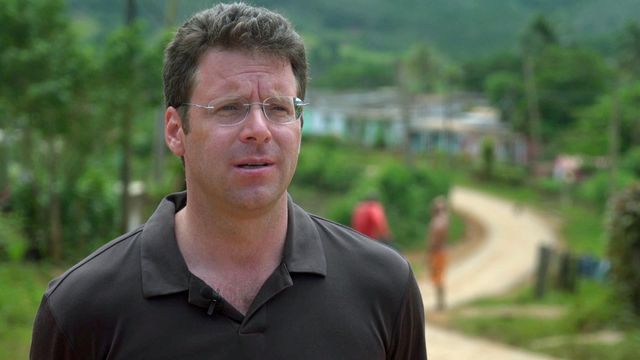
Watch an interview of Paul Johnson in this video by Belly of the Beast: “Why Cheap Chicken Obscures Costly Cuba Sanctions”

“The embargo affects the import of food products for human consumption, in particular those destined to meet social programmes, as restrictions limit their quantity and quality, thus having a direct effect on the food security of the vulnerable segments of the population.” – UN FAO, 3/23
“Cuba imports 80 percent of its food… which represents an expense of nearly US$2 billion.” – Oxfam, Right to Live Without a Blockade, 2021
“The procurement and shipment of food and non-food commodities, including fortified food provided by WFP, are also delayed owing to the difficulty in finding a shipping company willing to enter Cuban ports.” – World Food Programme, 2/23
Not waiving Title III of the Helms-Burton Act, “under which third-country companies trading with Cuba can be sued in United States courts, has had a negative impact on Cuban trade by drastically reducing the commercial partners that operate in the country.” – UN FAO, 3/23
The state sponsor of terror designation “led several banks to suspend their operations in the country, including transfers for the payment of purchases of food, medicines, spare parts and goods for the population.” – Economic Commission of Latin America and the Caribbean (ECLAC), 3/23
“The United States imposes measures against shipping companies from third countries ferrying cargo from other countries to Cuba, impeding the flow of oil, foodstuffs and other commerce critical to the daily needs of Cuban citizens and residents, especially the most vulnerable groups living in rural areas.” – IFAD, 5/20
Food Production
Food production is hampered by U.S. sanctions, increasing costs for inputs such as machinery and fuel, making financing difficult, and preventing Cuba from accessing the latest agriculture technology, among other issues.
“The tightening measures of the embargo adopted by the current United States Government have deepened the negative impacts on agricultural production in Cuba.” – UN FAO, 4/20
Watch this video from Belly of the Beast: ‘Embargo on Cuba Hurts U.S. Farmers”
“Only 9 of 518 requests by the agricultural sector of Cuba in the international market for tractors, engines, batteries, forklifts and spare parts for agricultural machinery were approved in 2022 owing to the ‘fear to be punished’ [by U.S. sanctions].” – UN Report: Secondary sanctions, overcompliance and human rights. 9/23
“The high costs of inputs needed for agricultural, fisheries and livestock production … that, in many cases, are produced only by United States firms, reduce profitability and lower the ability of Cuba to satisfy local food requirements.” – UN FAO, 3/23
“[The embargo creates a] difficulty for Cuba to access external multilateral financing for development programs in agriculture and rural development in general, and the related unavailability of resources for rehabilitating and modernizing agricultural equipment and infrastructure.” – UN FAO, 4/20
“Even the implementation of food programs by United Nations agencies is reported to be hampered by rising costs for imports, cancellations of maritime transport contracts and delays in deliveries of goods, or rejections and delays of banking transactions to and from suppliers.” – UN Report: Secondary sanctions, overcompliance and human rights, 9/23
“Restrictions on access to financial resources and technologies have made it even more difficult to build farm-related infrastructure and increase productivity.” – UN FAO, 4/20
“Restrictive US policies have led to insufficient domestic food production (in terms of quantity, variety, quality, and safety), higher prices for imports to cover food needs, and inadequate technology to improve productivity.” – Oxfam, Right to Live Without a Blockade 2021
“The high costs of importing agricultural equipment and inputs are a limiting factor for agricultural productivity in Cuba, affecting the country’s ability to cover its food requirements. This represents a significant budgetary burden for the country, threatens those most dependent on social safety nets and poses challenges to food security in Cuba.” – World Food Programme, 2/23
“In the agricultural and rural sectors, the following limitations are observed:
- Obsolete agricultural equipment (for example, tractors, irrigation systems and water pumps) and lack of spare parts.
- High cost and lack of inputs required for agricultural and livestock production, processing and distribution (for example, fuel, animal feeds, seeds, fertilizers, herbicides, pesticides and veterinary pharmaceuticals).
- Insufficient access to hard-currency financing for the import of equipment and inputs.
- Limited access to providers of new agricultural technology.
- Limited export opportunities for some agricultural products
The limitations contribute to low productivity levels, limiting the quantity, quality and competitiveness of domestic food production and making high levels of food imports necessary to cover the needs of the rural population.” – International Fund for Agricultural Development (IFAD) 5/20
Cuba's Agriculture Exports
The embargo prevents Cuba from selling products in the U.S., substantially reducing revenue earnings and increasing shipping and other costs in reaching other markets. It also makes it more difficult and less profitable for Cuba to sell its agriculture products to other countries, including in Europe, due to increased shipping, insurance and logistical costs. Moreover, the No Stolen Trademarks Act, which has passed the House, would prevent Cuba from ever exporting Havana Club rum, a major Cuban product, to the U.S. as the brand would not be protected or recognized by U.S. law even though U.S. patent courts have previously upheld its trademark.
“The impossibility of taking full advantage of the export potential (i.e. of coffee, honey, tobacco, live lobsters and aquaculture products) to the nearest market, the United States, has implied major losses, since it has been necessary to sell to markets located farther away, with the resultant higher marketing and distribution costs, negatively affecting the foreign-exchange earnings of Cuba and its capacity to purchase basic products, especially food.” – UN FAO, 3/23
“Banks reject commercial or financial transactions by Cuban enterprises in United States dollars and in other currencies, which hinders payment for certifications of Cuban products with a high potential to be commercialized in Europe.” – UN FAO, 3/23
Watch an interview of a Cuban entrepreneur in the food industry in this Belly of the Beast video: “U.S. Sanctions Stymie Cuban Entrepreneurs”
Congressional Research Service, U.S. Agricultural Trade with Cuba: Current Limitations and Future Prospects, May 2021.https://crsreports.congress.gov/product/pdf/R/R46791#
UN Secretary-General, Necessity of ending the economic, commercial and financial embargo imposed by the United States of America against Cuba, 2020. https://undocs.org/A/75/81
UN Secretary-General, Necessity of ending the economic, commercial and financial embargo imposed by the United States of America against Cuba, 2023. https://www.undocs.org/A/78/84
[Quotes and statistics from the United Nations Food and Agriculture Organization (FAO), the International Fund for Agriculture Development (IFAD), the Economic Commission for Latin America and the Caribbean (ECLAC), and the World Food Programme (WFP) are found in the previous two UN documents.]
UN Special Rapporteur on the negative impact of unilateral coercive measures
on the enjoyment of human rights, Secondary sanctions, overcompliance and human rights, 2023. https://undocs.org/A/78/196
Tom Vilsack, Secretary of Agriculture, https://x.com/bellybeastcuba/status/1771277800617460199?s=20
Guillaume Long, Former Foreign Minister of Ecuador, https://twitter.com/GuillaumeLong/status/1770480867254710335
Center for Democracy in the Americas, U.S.-Cuba Agricultural Relations: Interview with Paul Johnson, August 2023. https://www.democracyinamericas.org/interviews/us-cuba-agricultural-relations-paul-johnson
Center for Democracy in the Americas, Sustainable Agriculture in Cuba: Interview with Margarita Fernandez, PhD, October 2023. https://www.democracyinamericas.org/interviews/sustainableagriculture/margarita-cptms
Oxfam, Right to Live Without a Blockade, 2021. https://www.oxfamamerica.org/explore/research-publications/right-to-live-without-a-blockade/


